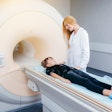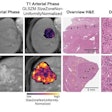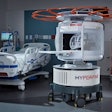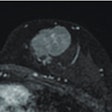Dear AuntMinnie Member,
What role should strategic planning play for imaging facilities in the era of accountable care?
That's the question posed by Bob Maier of consulting firm Regents Health Resources in a new article in our Imaging Leaders Digital Community.
Speaking at last week's AHRA 2013 meeting in Minneapolis, Mr. Maier said that as reimbursement shifts from the fee-for-service model, radiology must maintain a focus on improving patient care and outcomes. The new approach would match accountable care's inherent focus on patients, he believes.
What does accountability mean in medical imaging? It starts with quick access to clinical data, judicious analysis of the appropriateness and cost-effectiveness of imaging exams, and providing measurable outcomes and, as always, quality images.
Learn more by clicking here, or visit the community at leaders.auntminnie.com.
Is capitation back?
Have things gotten so bad in radiology that we're yearning for the days of capitation, one of the features of managed care that physicians loved to hate?
In a new opinion article, Dr. Michael Brant-Zawadzki proposes a new payment model that he calls "population health," in which insurance payors offer a health system a single pot of money to care for a particular community. Under the model, the health system is rewarded for providing quality, efficient care, and it's punished if it operates inefficiently.
Dr. Brant-Zawadzki believes that population health will enable radiologists to get off the treadmill of fee-for-service medicine, which incentivizes transactions and forces radiology into the box of commoditization. Read more by clicking here.
MRI shows early treatment response
Finally, a new article in our MRI Digital Community indicates that two MRI protocols -- dynamic contrast-enhanced MRI and diffusion-weighted imaging -- can show signs of early treatment response to chemotherapy.
In a study from this week's American Association of Physicists in Medicine annual meeting in Indianapolis, University of Michigan researchers were able to see if brain tumors grew or shrank in response to treatment that consisted of whole-brain radiation therapy alone or in combination with the tumor-killing drug bortezomib.
The finding is important because it could help oncologists determine if therapy is working weeks sooner than existing approaches -- giving them the opportunity to change course if necessary.
Read more by clicking here, or visit our MRI Digital Community at mri.auntminnie.com.



.fFmgij6Hin.png?auto=compress%2Cformat&fit=crop&h=100&q=70&w=100)

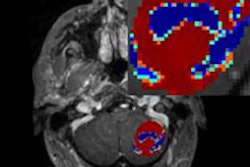

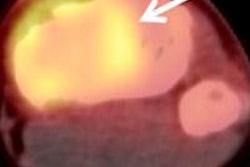
.fFmgij6Hin.png?auto=compress%2Cformat&fit=crop&h=167&q=70&w=250)
